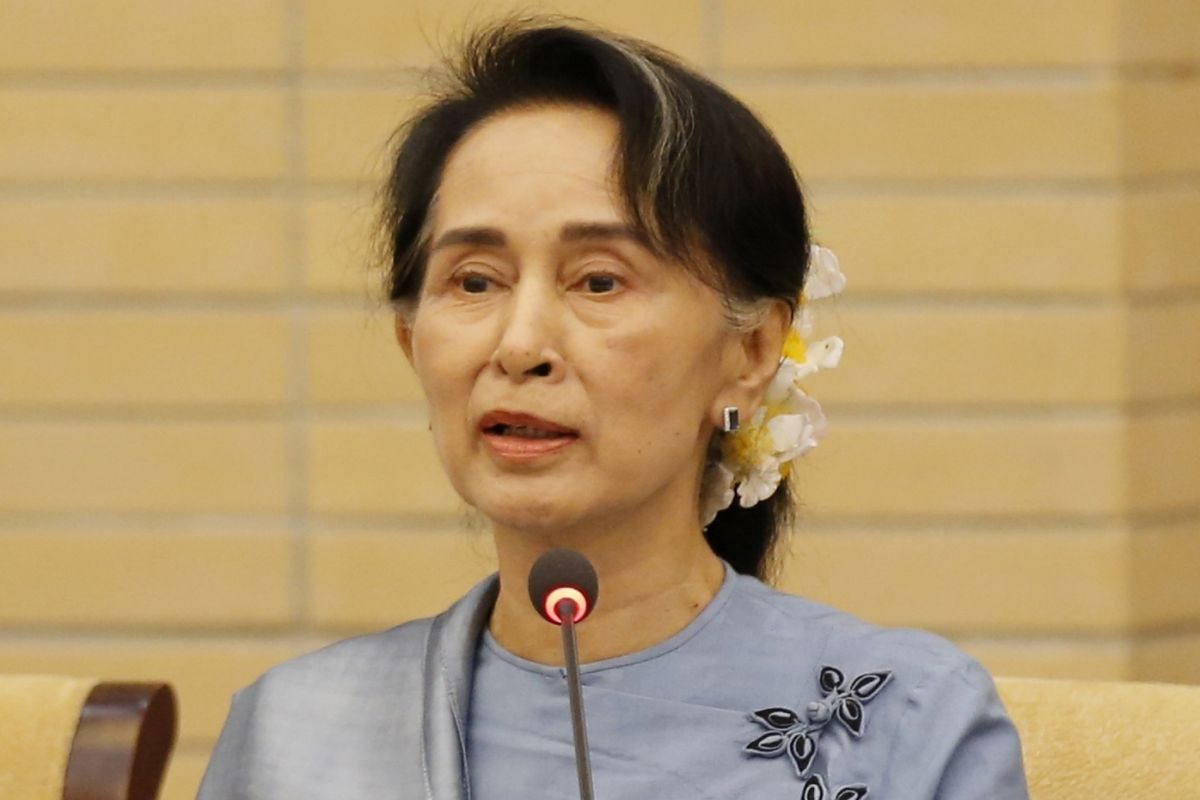TMC blames BJP for explosion, violence
Violence erupted again at Rejinagar in Murshidabad district on Wednesday evening, injuring around 20 people.
While it is true that the world has invested in Myanmar’s democratic transition over the past decade, the unbelievably naïve dumping of Ms Suu Kyi as the best bet for the country because she allegedly defended the military action against Rohingya insurgents in Rakhine state (while being critical of excesses by the security forces) has been the international community’s cardinal error.

[File Photo]
A little over a year after the military coup in Myanmar on 1 February 2021, the country is on the verge of collapse. Sporadic but persistent violence, widespread insecurity, a Covid-19 exacerbated economic crisis, and the continued imprisonment of former State Counsellor Aung San Suu Kyi who has been handed down sentence after sentence by junta controlled courts on dodgy cases foisted upon her have resulted in the neighbouring country of 54 million people having returned to autocracy.
Freedom and prosperity for its citizens remains a far cry. What has added to the sense of despondency is that ever newer crises from Ukraine to Ethiopia have knocked Myanmar off the headlines and the initial efforts of the international community to resolve the political crisis in the South-East Asian country have come to naught.
The much-touted, West-led “targeted sanctions” on junta members including freezing their assets in foreign bank accounts and restricting their access to visas have been brushed off by the Generals with derision as the State Administration Council (SAC) which they constituted to run the country after overthrowing the democratically elected Suu Kyi administration has courted both China and Russia to ensure the international sanctions regime is undermined.
Advertisement
In these rather dire circumstances, suggests Cornell University scholar Nay Yan Oo in a recent article, there are three basic initiatives the world should concentrate on ~ bringing all parties to the conflict to the negotiating table, providing humanitarian assistance to Myanmar’s long-suffering population, and engaging with the Tatmadaw (as the military establishment is known). But there are issues which need clarity.
While it is true that the world has invested in Myanmar’s democratic transition over the past decade, the unbelievably naïve dumping of Ms Suu Kyi as the best bet for the country because she allegedly defended the military action against Rohingya insurgents in Rakhine state (while being critical of excesses by the security forces) has been the international community’s cardinal error. It not only strengthened the Tatmadaw, but also undermined the concessions Myanmar’s best-known daughter was slowly, but surely, extracting from the junta while engaging in the unbelievably tough task of preparing the army for power-sharing and building democratic institutions.
As a result, the Association of Southeast Asian Nations and the West have been reduced to wringing their hands and lamenting from the side-lines. The former because the junta is showing no signs of following through on the “five-point consensus” it hammered out with coup leaders last April which included an immediate cessation of violence and a constructive dialogue among all parties, and the latter because it has been largely reduced to irrelevance with Russia ~ even more than China ~ backing it to the hilt.
The other potentially significant player, India, which has influence with both pro-democracy forces as well as the generals, has let the opportunity to intervene slip. “To change Myanmar, the Tatmadaw must be changed,” writes Nay Yan Oo. But for that to come to fruition, the military leadership must first be engaged with. Which is precisely what Ms Suu Kyi was doing when the rug was so unceremoniously pulled from under her feet.
Advertisement